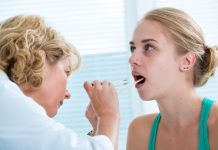Usually cancer occurs when abnormal cells grow in an unrestrained way.
Almost all breast cancers occur in women. Men can also be affected with breast cancer but it is quite rare.
Generally breast cancer starts as a small lump in your breast and it raises either slowly or quickly.
There is a chance to spread this to the other parts of your body as time passes. Early diagnosis and breast cancer awareness is the key to survival of breast cancer.
Most of the lumps in your breast are the cancers and they won’t spread to other parts of the body as the time passes. So, there is a need of careful checking of your breast lumps by a healthcare professional.
The exact cause of breast cancer is yet to be identified. The risks gradually increase with your age and for some women it can be a hereditary disorder. 1 in 10 women will develop breast cancer at some point in their lives.
Is there any relation between breast feeding and breast cancer?
Breast feeding can greatly helps you to protect against breast cancer. If a woman fed for longer period in her lifetime, then there is a less chance to get breast cancer.
When dealing with this cancer, your healthcare provider will consider your age, menopausal status, cultural origin, number of births you gave and your age at the birth of your first child. Breast feeding lowers the risk of this cancer up to 4.3% per every year of feeding.
You will get a doubt that how breast feeding can reduce the risk of breast cancer. Breastfeeding reduces the exposure to female hormone estrogen, which consequently decreases the risk of breast cancer. Breast feeding makes hormonal changes in your body and delays the risk of ovulation after pregnancy.
Normally breast cancer rate is high in developed countries when compared to under developed countries, because they tend to have more children.
Radiation therapy for breast cancer:
For some women, taking radiation therapy following lumpectomy for breast cancer can increase the risk of developing radiation-related coronary damage. When radiation is applied on your breast, it damages your heart and causes many risks and worries. Some women have right-sided breast cancer while some others have left-sided.
Annual screening with mammography is recommended to avoid the risk. Otherwise, use magnetic resonance imaging (MRI) to find breast cancers that a mammogram cannot determine in high-risk women. MRI also helps to find tumors even in very dense breasts and can also find very small tumors.
Breast cancer verses HRT:
Usually hormone replacement therapy (HRT) contains estrogen hormone replacement. You already know that estrogen promotes the growth of breast cancer and it increases the risks if you already have cancer.
So, estrogen replacement therapy is not prescribed for women who already have breast cancer. Frankly speaking HRT doubles the risk of breast cancer.













